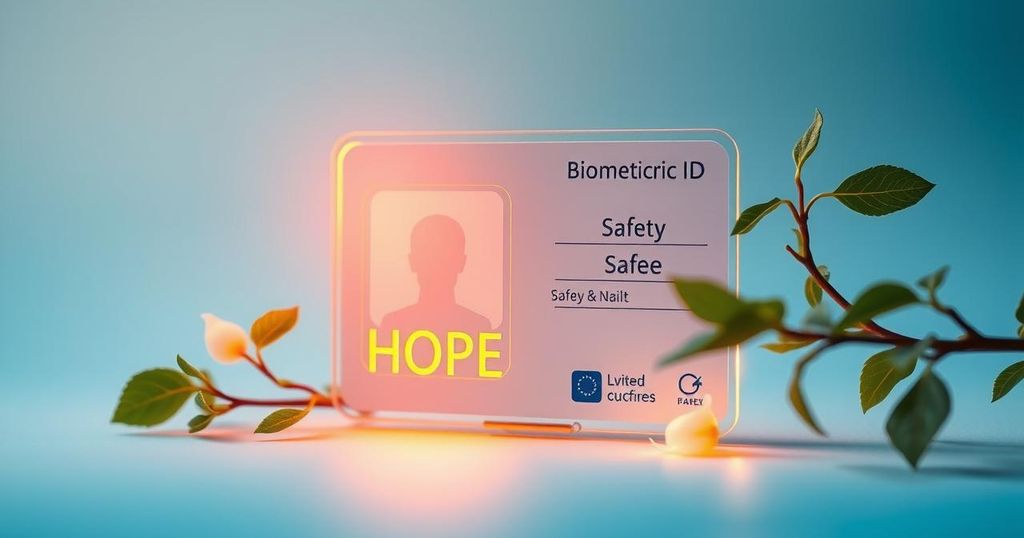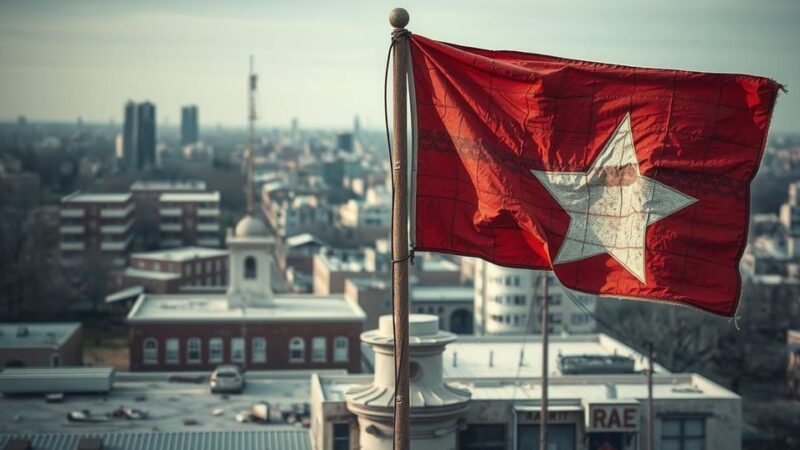Biometric identity cards are being distributed to refugees in Cameroon, representing a significant step towards their protection and inclusion. This initiative, supported by the Government of Cameroon and the UNHCR, aims to improve the lives of refugees by enabling greater freedom of movement and access to essential services. Ultimately, these ID cards symbolize hope and a brighter future for individuals like Ali Bappaladane and Hadidja.
In Cameroon, refugees are experiencing a significant change with the introduction of biometric identity cards. These cards, part of a collaborative effort between the Government of Cameroon and UNHCR, symbolize protection and welcome for those displaced. Ali Bappaladane, president of the refugee association in Mbaimboum, embodies the anticipation felt by many as he joins fellow refugees to receive their cards, which facilitate freedom of movement and access to essential services.
The distribution initiative is not limited to the Far North region; it extends to the capital, Yaoundé, where urban refugees also eagerly await their identification. Hadidja, a Chadian refugee and medical student, expresses hope that the new ID card will aid her access to financial services and academic scholarships. This highlights the broader implications of the biometric ID cards in enhancing the lives of refugees through greater opportunity for participation in society.
The impact of biometric ID cards extends beyond mere identification, offering refugees a key to personal autonomy and societal inclusion. As Shelley Teckombi Yazembrou, a refugee from the Central African Republic, notes, these cards alleviate the fear of arrest, allowing for free movement and access to basic rights. UNHCR’s Bettina Gambert emphasizes the implications of this initiative as a crucial step towards achieving the Sustainable Development Goals, showcasing successful collaboration between governmental and international entities.
The biometric ID cards are instrumental in securing the rights and protections of refugees while facilitating their integration into Cameroonian society. This initiative allows refugees to access essential services, open bank accounts, and engage with the local economy. As Ali and Hadidja receive their cards, they capture the essence of hope and resilience, symbolizing a shared commitment to improving lives through cooperation among stakeholders.
The initiative to introduce biometric ID cards for refugees in Cameroon is a collaborative effort led by the Government of Cameroon, the Ministry of External Relations (MINREX), and the UN Refugee Agency (UNHCR). It seeks to provide refugees with formal recognition, aiding their integration into society. Biometric cards enhance the safety and mobility of refugees, directly supporting their rights and participation in economic activities essential for their recovery and stability in host communities.
The distribution of biometric ID cards in Cameroon marks a transformative moment for refugees, representing not only identification but also hope and opportunity. This initiative paves the way for enhanced freedom of movement, access to services, and societal inclusion. As refugees receive their ID cards, they exemplify the successful collaboration between government and international organizations, moving towards the fulfillment of humanitarian goals and Sustainable Development Objectives.
Original Source: www.unhcr.org







